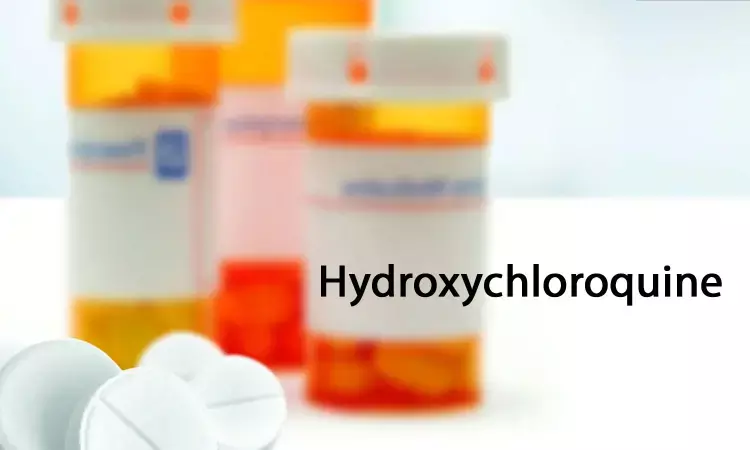- Home
- Medical news & Guidelines
- Anesthesiology
- Cardiology and CTVS
- Critical Care
- Dentistry
- Dermatology
- Diabetes and Endocrinology
- ENT
- Gastroenterology
- Medicine
- Nephrology
- Neurology
- Obstretics-Gynaecology
- Oncology
- Ophthalmology
- Orthopaedics
- Pediatrics-Neonatology
- Psychiatry
- Pulmonology
- Radiology
- Surgery
- Urology
- Laboratory Medicine
- Diet
- Nursing
- Paramedical
- Physiotherapy
- Health news
- Fact Check
- Bone Health Fact Check
- Brain Health Fact Check
- Cancer Related Fact Check
- Child Care Fact Check
- Dental and oral health fact check
- Diabetes and metabolic health fact check
- Diet and Nutrition Fact Check
- Eye and ENT Care Fact Check
- Fitness fact check
- Gut health fact check
- Heart health fact check
- Kidney health fact check
- Medical education fact check
- Men's health fact check
- Respiratory fact check
- Skin and hair care fact check
- Vaccine and Immunization fact check
- Women's health fact check
- AYUSH
- State News
- Andaman and Nicobar Islands
- Andhra Pradesh
- Arunachal Pradesh
- Assam
- Bihar
- Chandigarh
- Chattisgarh
- Dadra and Nagar Haveli
- Daman and Diu
- Delhi
- Goa
- Gujarat
- Haryana
- Himachal Pradesh
- Jammu & Kashmir
- Jharkhand
- Karnataka
- Kerala
- Ladakh
- Lakshadweep
- Madhya Pradesh
- Maharashtra
- Manipur
- Meghalaya
- Mizoram
- Nagaland
- Odisha
- Puducherry
- Punjab
- Rajasthan
- Sikkim
- Tamil Nadu
- Telangana
- Tripura
- Uttar Pradesh
- Uttrakhand
- West Bengal
- Medical Education
- Industry
Further evidence does not support hydroxychloroquine for patients with covid-19

The anti-inflammatory drug hydroxychloroquine does not significantly reduce admission to intensive care or death in patients hospitalised with pneumonia due to covid-19, finds a study from France published by The BMJ today.
A randomised clinical trial from China also published today shows that hospitalised patients with mild to moderate persistent covid-19 who received hydroxychloroquine did not clear the virus more quickly than those receiving standard care. Adverse events were higher in those who received hydroxychloroquine.
Taken together, the results do not support routine use of hydroxychloroquine for patients with covid-19.
Hydroxychloroquine can reduce inflammation, pain, and swelling, and is widely used to treat rheumatic diseases. It is also used as an anti-malarial drug. Lab tests showed promising results, but accumulating trial and observational evidence has called into question whether there are any meaningful clinical benefits for patients with covid-19.
Despite this, hydroxychloroquine has already been included in Chinese guidelines on how best to manage the disease, and the US Food and Drug Administration (FDA) issued an emergency use authorization to allow the drug to be provided to certain hospitalized patients. The FDA has since warned against use outside clinical trials or hospital settings due to the risk of heart rhythm problems.
In the first study, researchers in France assessed the effectiveness and safety of hydroxychloroquine compared with standard care in adults admitted to hospital with pneumonia due to covid-19 who needed oxygen.
Of 181 patients, 84 received hydroxychloroquine within 48 hours of admission and 97 did not (control group).
They found no meaningful differences between the groups for transfer to intensive care, death within 7 days, or developing acute respiratory distress syndrome within 10 days.
The researchers say that caution is needed in the interpretation of their results, but that their findings do not support the use of hydroxychloroquine in patients hospitalised with covid-19 pneumonia.
In the second study, researchers in China assessed the effectiveness and safety of hydroxychloroquine compared with standard care in 150 adults hospitalised with mainly mild or moderate covid-19.
Patients were randomly split into two groups. Half received hydroxychloroquine in addition to standard care and the others received standard care only (control group).
By day 28, tests revealed similar rates of covid-19 in the two groups but adverse events were more common in those who received hydroxychloroquine. Symptom alleviation and time to relief of symptoms also did not differ meaningfully between the two groups.
While further work is needed to confirm these results, the authors say that their findings do not support the use of hydroxychloroquine to treat patients with persistent mild to moderate covid-19.
For further reference log on to:
https://www.bmj.com/content/369/bmj.m1844Dr Kamal Kant Kohli-MBBS, DTCD- a chest specialist with more than 30 years of practice and a flair for writing clinical articles, Dr Kamal Kant Kohli joined Medical Dialogues as a Chief Editor of Medical News. Besides writing articles, as an editor, he proofreads and verifies all the medical content published on Medical Dialogues including those coming from journals, studies,medical conferences,guidelines etc. Email: drkohli@medicaldialogues.in. Contact no. 011-43720751


